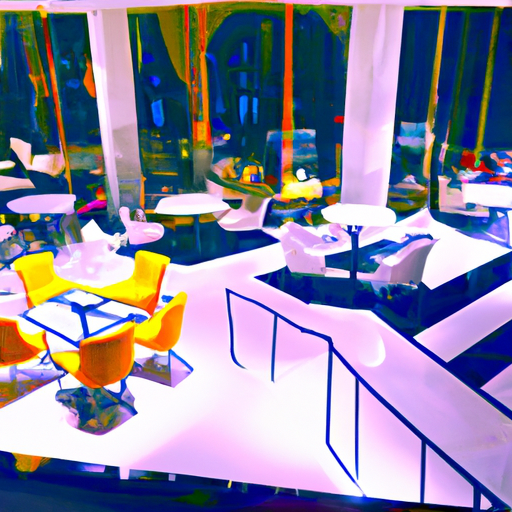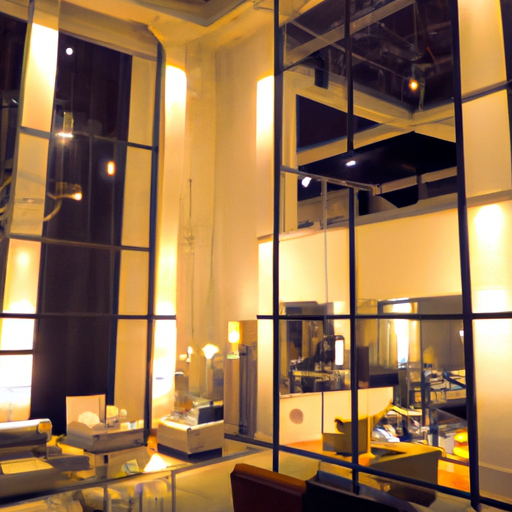
Benefits of Upgrading Tech Architecture in Hotels
The world of technology is constantly evolving, and it is essential for businesses to keep up with the latest advancements in order to stay competitive. This is especially true for hotels, where technology plays a crucial role in providing a seamless and enjoyable experience for guests. Upgrading the tech architecture in hotels can bring a wide range of benefits, from improved efficiency and cost savings to enhanced guest satisfaction.
One of the key benefits of updating tech architecture in hotels is increased efficiency. With the right technology in place, hotel staff can streamline their operations and automate time-consuming tasks. For example, a modern property management system can handle everything from reservations and check-ins to housekeeping and billing, freeing up staff to focus on providing personalized service to guests. This not only improves efficiency but also allows hotels to operate with fewer staff members, resulting in significant cost savings.
Another advantage of upgrading tech architecture in hotels is improved guest satisfaction. Today’s travelers have high expectations when it comes to technology, and hotels that fail to meet these expectations risk losing business. By investing in the latest tech solutions, hotels can offer guests a seamless and convenient experience. For example, mobile check-in and keyless entry systems allow guests to bypass the front desk and go straight to their rooms, saving them time and hassle. In-room technology, such as smart TVs and voice-activated assistants, can also enhance the guest experience by providing personalized entertainment options and easy access to hotel services.
In addition to efficiency and guest satisfaction, upgrading tech architecture in hotels can also lead to cost savings. While the initial investment may seem daunting, the long-term benefits can far outweigh the costs. For example, energy management systems can help hotels reduce their energy consumption and lower utility bills. Smart thermostats and lighting controls can automatically adjust settings based on occupancy, ensuring that energy is not wasted when rooms are unoccupied. Similarly, cloud-based solutions can eliminate the need for on-site servers, reducing maintenance and hardware costs.
Furthermore, updating tech architecture in hotels can future-proof the business. Technology is constantly evolving, and hotels that fail to keep up risk falling behind their competitors. By investing in flexible and scalable tech solutions, hotels can adapt to changing trends and customer preferences. For example, integrating artificial intelligence and machine learning capabilities can enable hotels to analyze guest data and personalize their offerings. This not only improves the guest experience but also allows hotels to stay ahead of the curve and anticipate future needs.
In conclusion, updating tech architecture in hotels is of utmost importance in today’s digital age. The benefits are numerous, ranging from increased efficiency and cost savings to improved guest satisfaction and future-proofing the business. By embracing the latest technology solutions, hotels can provide a seamless and enjoyable experience for their guests while staying competitive in a rapidly evolving industry. So, if you’re a hotel owner or manager, it’s time to consider upgrading your tech architecture and reaping the rewards it brings.
Key Considerations for Updating Tech Architecture in Hotels

The hospitality industry is constantly evolving, and hotels need to keep up with the latest technology trends to stay competitive. Updating tech architecture in hotels is crucial for providing a seamless guest experience and improving operational efficiency. In this article, we will discuss key considerations for updating tech architecture in hotels.
First and foremost, it is important to assess the current tech infrastructure in the hotel. This includes evaluating the existing hardware, software, and network systems. Identifying any outdated or inefficient components is essential for determining what needs to be updated. It is also important to consider the scalability of the current tech architecture. Will it be able to support future growth and expansion? These initial assessments will provide a solid foundation for the tech update process.
Another key consideration is the integration of different systems. Hotels rely on various technology systems, such as property management systems, point-of-sale systems, and guest service platforms. Ensuring that these systems can seamlessly communicate with each other is crucial for streamlining operations and providing a seamless guest experience. Integration can also help automate processes, such as guest check-in and check-out, which can save time and improve efficiency.
Data security is a top priority for hotels, especially with the increasing number of cyber threats. Updating tech architecture should include implementing robust security measures to protect guest information and prevent data breaches. This may involve upgrading firewalls, implementing encryption protocols, and regularly updating security software. It is also important to train staff on cybersecurity best practices to minimize the risk of human error.
In today’s digital age, guests expect a high level of connectivity and convenience. Updating tech architecture should include providing reliable and fast Wi-Fi throughout the hotel premises. This is particularly important in guest rooms, where guests often rely on Wi-Fi for work, entertainment, and communication. Additionally, hotels should consider implementing mobile apps or digital concierge services to enhance the guest experience. These technologies can allow guests to easily access hotel services, make reservations, and request assistance, all from their smartphones.
The tech update process should also take into account the needs and preferences of hotel staff. Providing them with user-friendly and efficient tools can greatly improve their productivity and job satisfaction. For example, updating the property management system to a more intuitive and comprehensive platform can simplify tasks such as room reservations, inventory management, and reporting. Additionally, providing staff with mobile devices or tablets can enable them to access information and communicate with each other more effectively.
Lastly, it is important to consider the cost and return on investment of updating tech architecture. While the initial investment may be significant, the long-term benefits can outweigh the costs. Improved operational efficiency, enhanced guest experience, and increased revenue potential are just a few of the advantages that come with updating tech architecture. Conducting a cost-benefit analysis can help hotels determine the feasibility and potential ROI of the tech update.
In conclusion, updating tech architecture in hotels is essential for staying competitive in the ever-evolving hospitality industry. Key considerations include assessing the current tech infrastructure, integrating different systems, ensuring data security, providing reliable Wi-Fi and digital services for guests, improving tools for staff, and evaluating the cost and ROI. By prioritizing these considerations, hotels can create a tech architecture that enhances the guest experience, improves operational efficiency, and drives business success.
Impact of Updated Tech Architecture on Guest Experience in Hotels
The guest experience is a top priority for hotels around the world. From the moment a guest walks through the door to the time they check out, hotels strive to provide a seamless and enjoyable stay. One way hotels can enhance the guest experience is by updating their tech architecture.
In today’s digital age, guests expect a certain level of technology integration during their stay. They want to be able to easily connect their devices to the hotel’s Wi-Fi, control the temperature and lighting in their room with a touch of a button, and have access to a wide range of entertainment options. By updating their tech architecture, hotels can meet these expectations and provide a more convenient and enjoyable stay for their guests.
One of the key benefits of updating tech architecture in hotels is the improved connectivity it provides. With more and more guests relying on their smartphones, tablets, and laptops for work and entertainment, having a strong and reliable Wi-Fi connection is essential. By investing in the latest networking equipment and infrastructure, hotels can ensure that their guests have fast and seamless internet access throughout their stay.
In addition to improved connectivity, updating tech architecture can also enhance the guest experience through the integration of smart devices. Smart thermostats, for example, allow guests to easily control the temperature in their room, ensuring their comfort at all times. Smart lighting systems can be programmed to create different moods and ambiances, allowing guests to personalize their environment. These small touches can make a big difference in how guests perceive their stay and can contribute to a more memorable experience.
Another way updated tech architecture can impact the guest experience is through the implementation of advanced entertainment options. With streaming services becoming increasingly popular, guests expect to have access to a wide range of movies, TV shows, and music during their stay. By updating their tech architecture, hotels can provide guests with smart TVs that are compatible with popular streaming platforms, allowing them to easily access their favorite content. This not only enhances the guest experience but also provides hotels with an opportunity to generate additional revenue through in-room entertainment services.
Furthermore, updated tech architecture can also improve the efficiency of hotel operations, which indirectly benefits the guest experience. For example, by implementing a cloud-based property management system, hotels can streamline their check-in and check-out processes, reducing wait times and improving guest satisfaction. Similarly, by integrating smart energy management systems, hotels can reduce their energy consumption and carbon footprint, contributing to a more sustainable and eco-friendly stay for guests.
In conclusion, updating tech architecture in hotels is of utmost importance when it comes to enhancing the guest experience. From improved connectivity to the integration of smart devices and advanced entertainment options, updated tech architecture can provide guests with a more convenient and enjoyable stay. Additionally, it can also improve the efficiency of hotel operations, indirectly benefiting the guest experience. By investing in the latest technology, hotels can stay ahead of the curve and meet the evolving expectations of their guests in today’s digital age.


